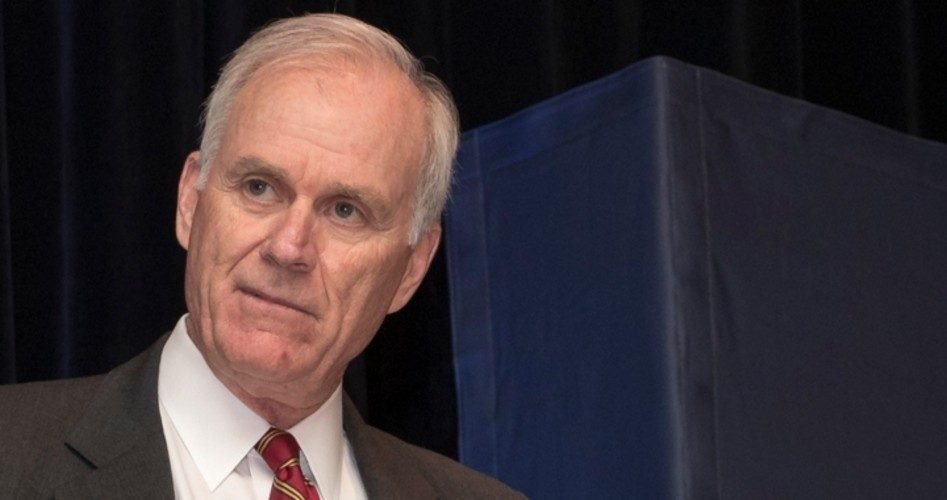
Top Navy and Marine Corps officials warned the House Appropriations defense subcommittee Wednesday of the threat of China’s tactic of buying up foreign land “to win without fighting.” Navy Secretary Richard Spencer (shown) called the move “weaponizing capital.”
As The Hill reported, Spencer told lawmakers, “When it comes to China, the bottom line there is the checkbook,” adding, “Not only in the dollars and cents that they are writing to support their military expansion and their technological work, but what they’re doing around the globe … weaponizing capital.”
Spencer also said that with projects such as the funding of a port in Sri Lanka — undertaken so the Chinese Communist government will control the port — the “open checkbook” wielded by China “keeps me up at night.”
Marine Corps Commandant General Robert Neller expressed the same sentiments, saying that while “the Russians” are “a little more in your face” and “want to impose their will,” Chinese Communists “are playing the long game” by using “big bags of cash” to buy up “airfields and ports to extend their reach.” He added, “They want to win without fighting.”
And in a rare moment of support for an administration policy, Senator Chuck Schumer (D-N.Y.) said regarding the steel and aluminum tariffs President Trump is rolling out, “I believe that the President’s instincts to go after China are the right thing to do.” Schumer added, “I think China has taken terrible advantage of America over the last decade or two and they don’t play fair.” Schumer was careful to ameliorate his praise by going on to say, “The trouble — we don’t know what the details will be — so I don’t want to make any final comment.” He expressed that he thinks the tariffs will “have a greater negative effect on Canada and Europe than on China” and said, “So they ought to make sure what they do is focused on China. They are our number one trade problem.”
Schumer is correct. (But then, even a blind squirrel finds an occasional nut.) China is our number one trade problem. What Schumer left unsaid is that it is largely policies he and his fellow Party members have voted for that have made that so.
In fact, in one “trade agreement” after another — going back at least to NAFTA — Schumer has been at the forefront of giving away the farm here at home to bolster economies in other parts of the world — including China’s. If American policy had sought to put America first, China would not be the financial powerhouse it is now. That is a direct result of a series of “trade deals” that transferred one type of manufacturing after another to China.
That China is now using that money to buy up everything else is confusing only to those who have never played the game Monopoly. And as General Neller said, China is “playing the long game.” Part of that “long game” is political dominance. And on that front, China seems determined to spread the errors of Communism to the rest of the world. The Communist Party of China is already gaining ground by doling out large amounts of the weaponized capital to college student groups here in America. Those groups then act essentially as cell groups of the Party.
So, while Navy and Marine brass and Chuck Schumer are sounding the alarm, they are about 20 years behind the curve. This much is certain, the problem has been growing for decades, and it will take some time to completely fix it. Perhaps Trump’s tariffs will begin to turn that tide. As The New American’s Warren Mass wrote on that topic:
If Trump is successful in imposing his tariffs, the price of imported steel and aluminum and items made from those metals will increase, but this will give U.S.-made metal products a competitive advantage. In time, as the U.S. steel and aluminum mills go back into full production, providing thousands of jobs, the U.S. economy will reap the benefits. And this is exactly what Trump promised to do while running for president.
It is past time to reject the status quo trade deals that benefit the Globalist New World Order by draining America. Trump’s tariffs seem to be a step in that direction. If America waits any longer to correct course, it may be too late.
Photo of Navy Secretary Richard Spencer: U.S. Navy




